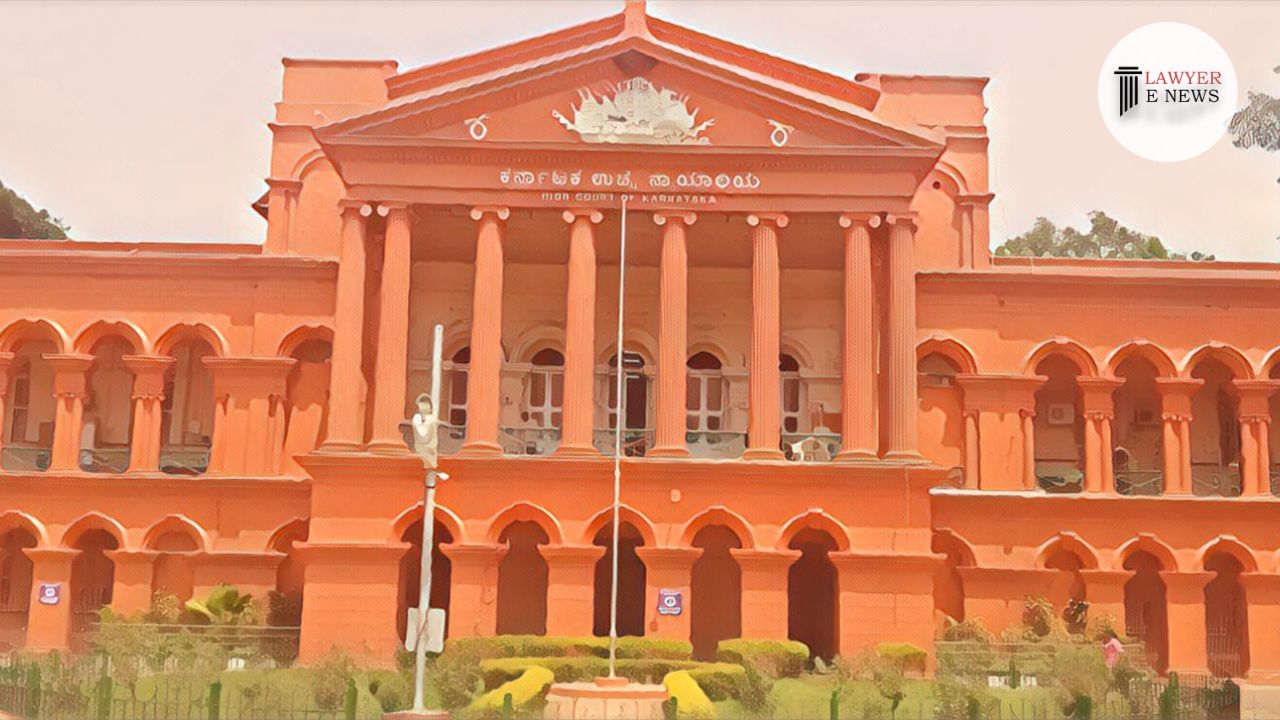-
by Admin
15 February 2026 2:36 AM



High Court affirms lower courts' rulings, emphasizing the need for substantial evidence to prove adverse possession and lawful possession for injunction.
The Karnataka High Court has dismissed a Regular Second Appeal (RSA No. 1035 of 2018) involving a dispute over adverse possession and a claim for permanent injunction. The judgment, delivered by Justice H.P. Sandesh, upheld the decisions of the trial court and the first appellate court, emphasizing the necessity for clear and convincing evidence to substantiate claims of adverse possession and lawful possession for injunction.
The appellant, Sheenappa Gowda, claimed that he had perfected his title to the disputed property by way of adverse possession and sought a declaration and permanent injunction against the respondent, Radhakrishna N. Both the trial court and the first appellate court dismissed his claims due to insufficient evidence. The appellant then filed a second appeal, restricting his claim to a permanent injunction.
The High Court reaffirmed the lower courts' findings that the appellant failed to establish the necessary animus for adverse possession. "Animus, or the intention to possess, must be clearly demonstrated and continuous," the court noted. Both oral and documentary evidence presented were deemed insufficient to prove the appellant’s claim. Justice Sandesh observed, "The factual matrix indicates a lack of continuous and hostile possession, which is essential for a claim of adverse possession."
In addressing the claim for permanent injunction, the court highlighted the requirement for proving lawful possession. The appellant's reliance on the admissions by the defendant’s witnesses was found to be inadequate without corroborative evidence. The court stated, "Lawful possession as on the date of filing the suit must be demonstrated with substantial evidence, which is conspicuously absent in this case."
The High Court declined to frame substantial questions of law under Section 100 of the Code of Civil Procedure, 1908 (CPC). Justice Sandesh emphasized that substantial questions of law arise only in the presence of significant errors in law or procedural misapplications. "The concurrent findings of fact by the lower courts do not warrant interference under Section 100 CPC," he remarked.
Justice H.P. Sandesh stated, "In the absence of clear and convincing evidence, both oral and documentary, to substantiate the claims of adverse possession and lawful possession, the appeal cannot be admitted. The lower courts have rightly dismissed the claims, and this court sees no reason to deviate from their findings."
The Karnataka High Court's dismissal of the appeal underscores the judiciary's insistence on robust evidence to support claims of adverse possession and lawful possession in injunction cases. By upholding the lower courts' decisions, the judgment reinforces the principle that substantial questions of law must be clearly present for an appellate court to intervene. This decision serves as a crucial precedent for future cases involving similar claims.
Date of Decision: 1st July 2024
Sheenappa Gowda v. Radhakrishna N.
